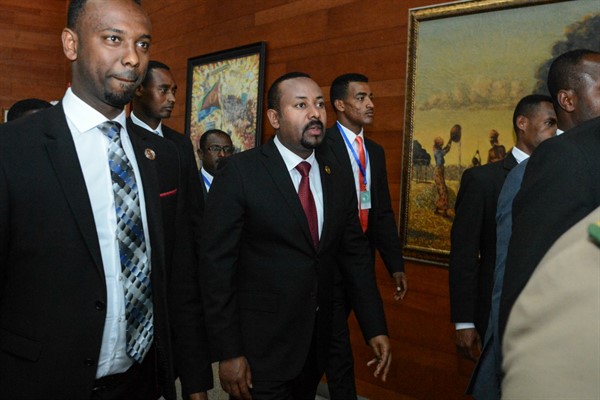Editor’s Note: Every Friday, Andrew Green curates the top news and analysis from and about the African continent.
The violent demonstrations that followed the killing of popular Ethiopian singer Hachalu Hundessa in Addis Ababa last week have left at least 239 people dead and led to thousands of political arrests. Hachalu’s Oromo community, Ethiopia’s largest ethnic group, is now bracing for a broader political crackdown as Prime Minister Abiy Ahmed’s administration attempts to forestall additional violence.
Hachalu gained fame for his protest songs, which gave voice to the feelings of political and economic marginalization among the Oromo, and he helped lead the anti-government demonstrations that ushered Abiy, the country’s first Oromo leader, into power in 2018. While an investigation into his assassination is still ongoing, Hachalu’s supporters, suspecting a political motive, took to the streets of Addis Ababa and the surrounding Oromia region.

